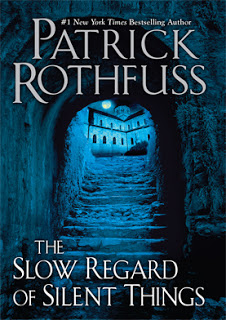
A pilot for the much awaited
Stargate Origins series was released. My prognosis: it will be a disgusting flop, yet remember that Stargate SG-1 was kind of terrible in the beginning and it went very far in the end. Since SG-1 and Atlantis went really over the top, the only solution was a prequel, but considering the Stargate universe, I bet it will be very difficult to reconcile any prequel with the events in the existing series.
First of all, there is the distribution format: it's a web series. Instead of a pilot episode lasting 45 to 60 minutes, they released three episodes, 10 minutes each. The "webisode" format doesn't give me a lot of hope. However, this might be a marketing ploy, to check how many people are actually still interested in the franchise. If they see they have a big fan base, they can always improve the show or start a serious one.
But now comes the real bummer: the quality of the show, from the productions values to script and acting, is abysmal.
They went with the gender swap crap: female protagonist, female director, etc. Yet instead of a character we can sympathize with or want to be her, we get an abusive, annoying and very stupid person who, if they were male, would have been pathetic and offensive. As female, it grates the nerves. See the scene where, tied up, surrounded by Nazis with guns who have her father hostage, she spits, bites and says "you're a dead man" and "next time I'll really make you bleed" to a Nazi officer. It does feel like the role was written for an adolescent, maybe prepubescent boy, then it was changed just a little for a 19 year old woman.
Which brings me to the next point: the Nazis. The Nazis again, portrayed as they always are: ugly, mean, pompous, fanatical, always mentioning their Führer, stupid, narrow minded, etc. How can you do any good writing with cardboard characters? The answer: you can't. Start a show like this and you miss out the opportunity to see the Americans, British and Nazi Germans cooperate against the teachings of their respective cultures in order to defeat the Goa'uld threat. I have high hopes for the camerawoman, who in all this disaster seems to have escaped with good characterization and a decent actress.
Last, but not least, the production values would have been bad in a student project. Almost no post processing, the special effects are horrid, the soundtrack is slapstick from other series and there are some moments (an alien landscape seen through a window which is an obvious pastel drawing, for example) that make you wonder which 10 year old genius made that for a school project.
So you have a cheap production that a few fans in a basement would have done better, marred by bad setup, unusable characters and stupid writing. All of these can change: money can be spent, writers and directors changed or motivated, step taken to improve something that fans have been waiting for for a long time. However, what cannot be changed are the actors. The lead actress is
bad, as are the two "young good guys". There is no getting around that. The others are not much better. Even
Connor Trinneer, who you might remember as Trip, the engineer in the Star Trek: Enterprise series (and was also in a few episodes of SG Atlantis) and in this plays "the father", acted dazed and confused, as if asking "how did I get here? what am I doing?" in every scene. He was probably regretting taking the role. And he is 48 years old, he could have played the dad without the cheap white hair and mustache.
Bottom line: Trying to YoungIndianaJonesize Stargate was always a tough sell. Doing it with such lack of respect for the franchise and to the cinematic art is mind boggling. Didn't they want to succeed with this? I am baffled. Here is
the trailer.
 You might wonder what a fractional number in a book series means. For some authors, it means books that are part of the universe, but not of the story, inbetween events that are defined maybe just chronologically. For others, it's even less, short stories that bring completion to their vision, different in scope, style and/or characters from the main books that maybe made you find and read them.
You might wonder what a fractional number in a book series means. For some authors, it means books that are part of the universe, but not of the story, inbetween events that are defined maybe just chronologically. For others, it's even less, short stories that bring completion to their vision, different in scope, style and/or characters from the main books that maybe made you find and read them.












